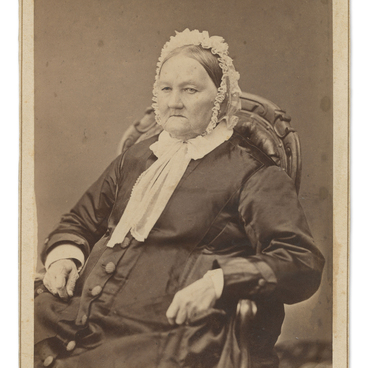Varvara Grigoryevna Filaretova (Stoletova) was the sister of Vasily, Nikolai, Alexander, and Dmitry Stoletov.
Varvara Stoletova, the eldest daughter and third child of the Stoletov family, was born in 1833. Following the traditions of her social circle, she was home-schooled. Under the influence of her elder brother Nikolai and younger brother Alexander, Varvara became proficient in German and French. Her parents ensured that she also learned to play the piano and dance. In 1860, Varvara married Andrei Pavlovich Filaretov, a Vladimir provincial architect and state councilor.
The Filaretovs resided on Troitskaya Street (currently Podbelsky Street) and subsequently acquired a residence “at Bolshaya Nizhegorodskaya Road” (currently known as Bolshaya Nizhegorodskaya Street 25, a building referred to as the Erlangen House). Several generations of the Filaretovs lived there until the 1960s. The family had four children: Nikolai, Ekaterina, Andrei, and Maria. Following their graduation from the local grammar school, the older siblings, Nikolai, Ekaterina and Andrei, left the family home to pursue higher education in Moscow. The youngest child, Maria, remained at home to assist and care for her mother. In her later years, Varvara Filaretova’s main leisure activity was reading, she enjoyed both fiction and scholarly literature.
Shortly before the death of Alexander Grigoryevich Stoletov in 1896, his sister Varvara Grigoryevna with her youngest daughter Maria moved to Moscow in order to be closer to their beloved brother and support him. From that point on, they resided in Moscow with their son Nikolai Andreyevich Filaretov, whose apartment was located on Arbat Street.
Ekaterina Nikolaevna Smirnova-Nevskaya, a distant relative and first biographer of the Stoletov family, who met with Varvara Filaretova in the 1900s, described her as “a tall, slim woman, always wearing a dark dress and a lace headband, with slightly protruding eyes that retained excellent vision“.
Varvara died in 1910 at a country residence near
Moscow, Barvikha, and was buried in the cemetery of the Nikolsky Church in the
village of Romashkovo in the Moscow district. Her devoted daughter Maria was
also buried next to her. A simple but elegant black marble monument has been
erected in their shared grave.


